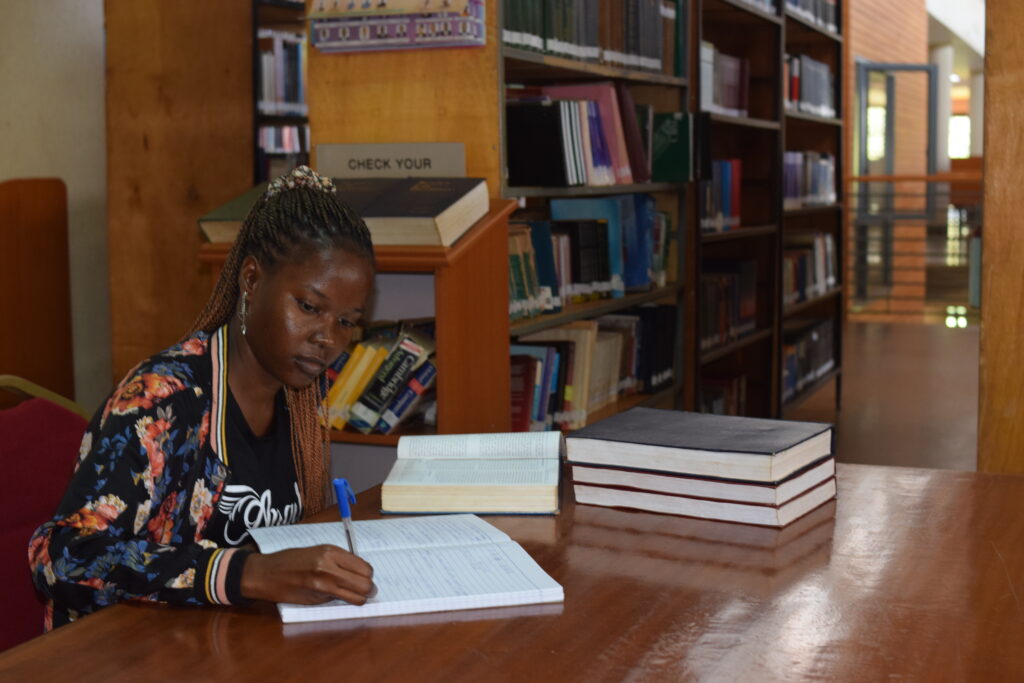By Asenath Were
As the semester hits its peak, students find themselves juggling tests, coursework, and continuous lectures which leaves many struggling to balance the intense workload. The tests and coursework serve as a way to secure marks before the final exams, but for some students, managing this can be difficult.
Joy Anyango, a first-year student pursuing a bachelor’s degree in Business Administration, says that amidst doing the tests, she has been struggling with courseworks and the continuous lectures. “One moment, we have a test; the next, a lecture, and then a presentation. The schedule can be hard,” she explains. “There was a day we started with a test, followed it up with a presentation, and after lunch, we had another presentation, only to end the day preparing for a test the following morning.”
The physical demands of moving between the various venues also adds to the challenge, Anyango notes. “Sometimes, one test is scheduled at Ankrah, and the next is back at the main campus. We lose about 20 minutes just walking between venues, which wastes our test time.”
A fellow Business Administration student, who preferred to remain anonymous, echoes her concerns stating that the location of the tests is not favourable for them. “At times you find that you may have a test at Ankrah and then your next text which in most cases is immediately after the first is either in Noll (N) or Kivengere (K) block.” he points out, venues that are quite a distance from each other.
Juggling between the academic demands is not a struggle only for the first year students. Valereen Mwahulhwa, a second-year Journalism, Media, and Communications student, feels the weight load of the tests and assignments as well. “The assignments are so many that everything around me now feels stressful,” she admits.
To cope, some students adopt personal routines to help them balance. Joseph Okulimo, a second-year Bachelor of Science in Information Technology student and an athlete, shared his strategy. He says he came up with a personal timetable to help him manage the hectic schedule “Since IT is a practical course, I find time to practice in the evenings. After supper, I go to my room, and I focus on my assignments,” he said.
Brighton Kobusingye Magyezii, a second year student pursuing a bachelor’s degree in Journalism, media and communication advised her fellow students in year 1 to always have in mind the fact that a lecturer can also unpredictably give a test. She says that when lecturers sometimes notice absenteeism from many students in class, they will resort to abrupt tests. She thus encourages them to always attend their lectures.
More so, she says, they should read and outdo themselves on every test. “I personally love being in the game, and like bringing on my A game. I am very inquisitive, and I do not like being caught off guard so I read and do my research and on top of that, I look for students who are better than me to find out how they do it,” she said.
Vincent Kisenyi, the Dean of the School of Business, draws a similarity between the way one feels before doing a test and sitting for a job interview. “It’s normal to fear tests just as one might be anxious before an interview,” he says. According to him, overcoming test anxiety lies in preparation and consistent effort throughout the semester. “At the start of the semester, students should know they’ll be assessed. The key is to stay prepared,” he emphasises.
To manage continuous assessments and minimise anxiety, Kisenyi advises students to engage with others and participate actively in class. “If you’re consistent in attending lectures, participating in discussions, and asking questions, you’re naturally building a knowledge base that will support you in individual assessments,” he explains. Engaging with lecturers, Kisenyi adds, is vital. “In the School of Business, we have space for students to engage. Lecturers are willing to assist, but students need to take responsibility for their success.”
He points out that juggling tests, courseworks and classworks is the real paradox of life. “Life does not come in a major calculated way,” he says and explains. “You are busy planning to go visit your parents, the landlord comes in demanding for their money, then somebody is falling sick. God has given us the ability to prioritise and stay organised, which is essential not only for school but for life,” he shares.
Mr.Kisenyi offers practical tips on managing time effectively: “You have 24 hours in a day. Plan for each hour, including when you’ll sleep, study, attend lectures, eat, and even take breaks. Learn how to plan your time and learn to have your priorities right,” he emphasised.
Navigating through tests, coursework, and personal responsibilities is a challenge, but one that is essential for growth. As Mr. Kisenyi pointed out, preparedness is key. Students who do as he advises and practice self-discipline with personal study routines often find themselves less stressed and better equipped for academic success.


